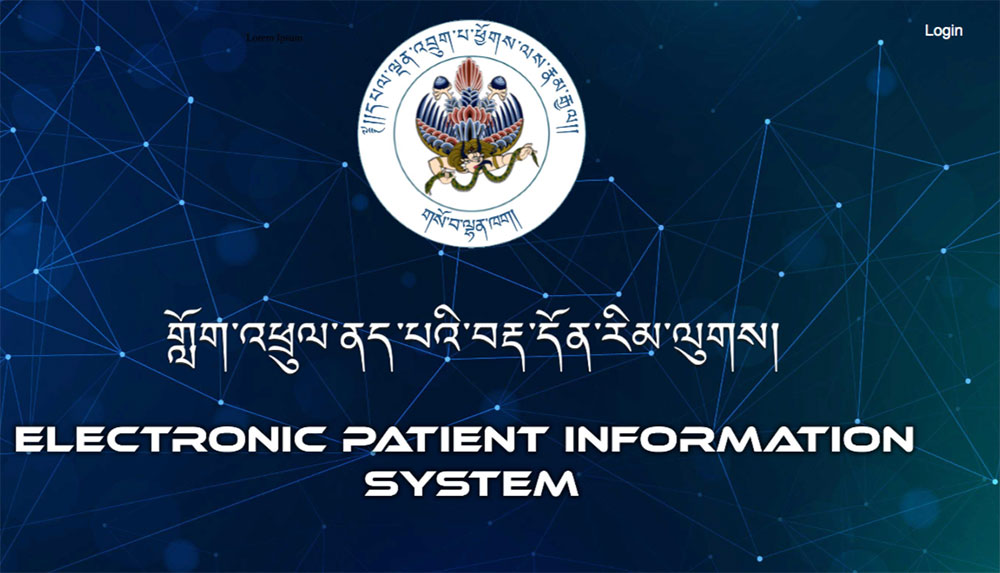
The Health Ministry will roll out the second phase of the electronic Patient Information System (ePIS) in Mongar and Gelephu referral hospitals, subsequently completing the nationwide rollout by June next year.
During the 50th meet-the-press on June 30, Health Minister Dechen Wangmo stated that the system usage is increasing, and the project team is focusing on fully implementing other modules such as IPD and Emergency. The aim is to transition from the manual paper-based process to a fully online system.
“As of June 29, a total of 10,959 patients have registered in the system, out of which 10,942 patients have been seen by doctors through ePIS,” Lyonpo said.
Lyonpo added, “After the launch of ePIS in April, the system rollout was implemented in hybrid mode, using both the ePIS system and a paper-based manual method. The use of the system has gradually increased, with patients being seen through ePIS in the outpatient department.”
According to Lyonpo, initially, JDWNRH faced challenges in supporting a large number of system users. “We anticipated this issue and had outsourced the work to upgrade the network at JDWNRH. However, the suppliers experienced delays in supplying the network equipment, which caused slight issues.” Nonetheless, Lyonpo mentioned that with the support of GovTech and Thimphu TechPark Limited, the network issue has been resolved.
Lyonpo also stated that departments and units with fewer patients are currently undergoing development or are yet to be developed. Additionally, traditional medicine Drungtshos and Menpas are being trained, and the system will be rolled out in those areas soon.
Furthermore, Lyonpo shared that in the future, patient data from both hospitals can be exchanged to monitor and provide better healthcare by both allopathic and traditional medicine practitioners through cross-referrals. This will improve patient safety and facilitate the formulation of better policies in the health sector. Moreover, the referral process will be easier with online data stored on the web.
To access healthcare through the e-PIS system, patients are required to present proof of identity, such as a Citizenship Identity Card or voter card, as well as a work permit. After showing the CID or voter card, the doctor enters the identity card number into the system. If it is the patient’s first visit since the system’s implementation, the doctor asks for the patient’s medical history and records it in the system. This ensures that the next time a doctor enters the identity card number, all medical records will be available.
The ePIS, which is also one of the main components of Digital Drukyul developed by Thimphu TechPark, will maintain patient details electronically. With the ePIS in place, patients visiting health facilities will no longer need to maintain paper prescriptions or health books. The system incorporates anti-hack and backup features.
The ePIS, as part of the health ministry’s vision to transition from paper-based medical records and enhance the use of ICT, has been in development since 2016 and was piloted in Paro in 2017. Supported by the Asian Development Bank, ePIS was officially launched on April 14 this year after a year-long trial in Thimphu.












